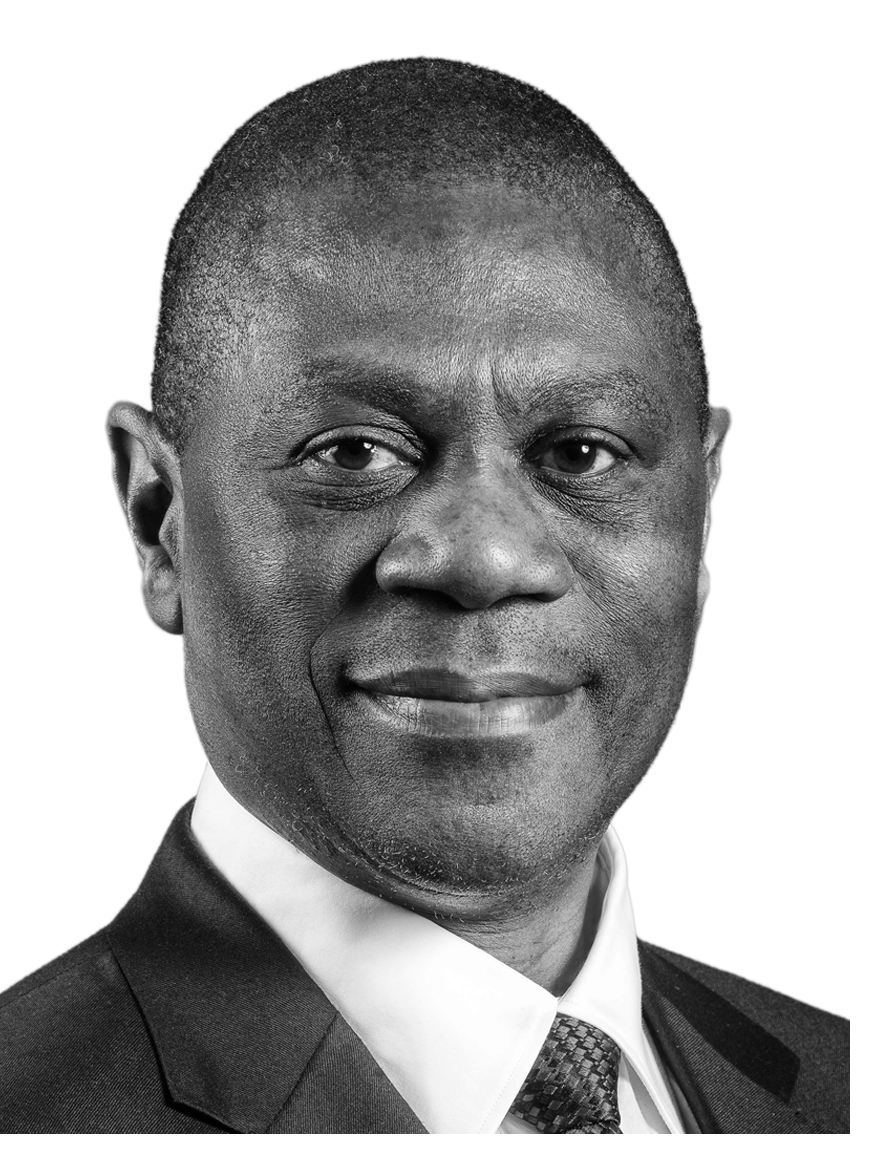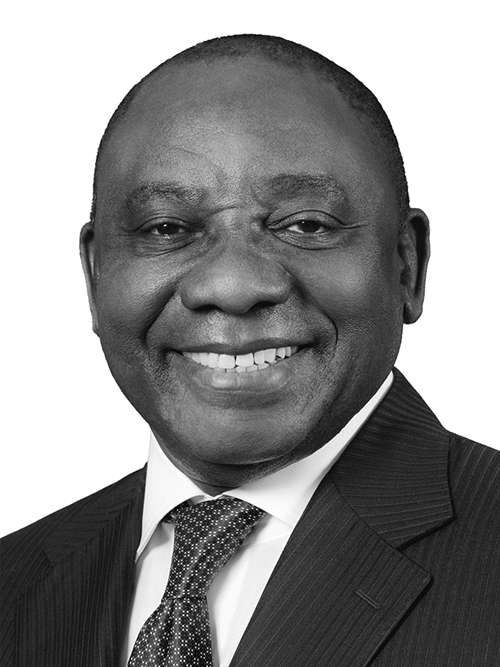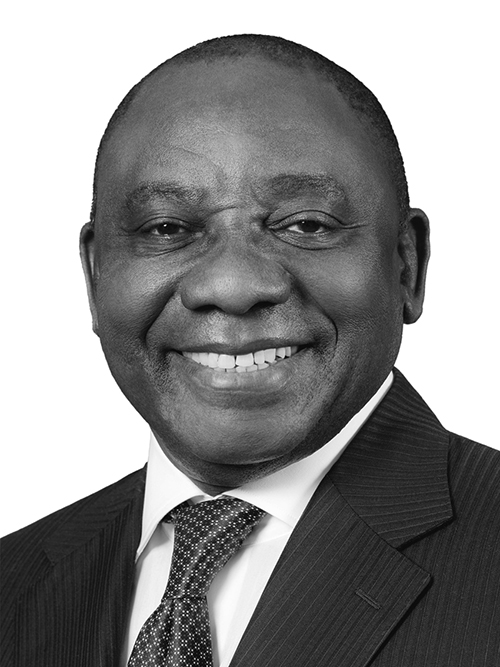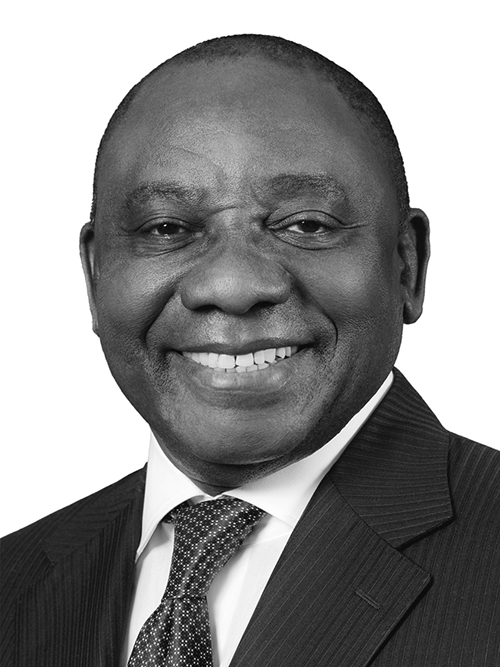Programme Directors,
Chief Justice Raymond Zondo and Mrs Zondo, our guests of honour this evening,
Former President Kgalema Motlanthe and Mrs Motlanthe,
Retired Chief Justice Mogoeng Mogoeng and Mrs Mogoeng,
Incoming Chief Justice Mandisa Maya,
Ministers and Deputy Ministers,
Justices,
Members of the legal fraternity,
Distinguished Guests,
Ladies and Gentlemen,
It is a great honour to pay tribute to a distinguished jurist and a dedicated champion of our democratic constitutional order.
Through the service he has rendered the nation, through his conduct and his demeanour, Chief Justice Raymond Zondo has earned the admiration, respect and gratitude of all South Africans.
In Plato’s Republic, Socrates says that a good judge should be ‘old and wise’.
While there are some among us who may wish to contest the emphasis on age, there can be no doubt about the value of wisdom.
Socrates says:
“The judge should be a late learner of the nature of injustice, which they should study, not as something which is part of their own soul, but as a foreign element present in others.”
“The judge will be one who, after a period of learning and discipline, is able to perceive the real nature of good and evil.”
So while Plato’s ideal judge is wise, their wisdom extends beyond legal expertise.
They understand the difference between good and evil, between right and wrong.
They have a profound grasp of the nature of injustice. Yet they are able to dispense justice impartially.
Such a judge is not easily deceived.
In Republic, the ideal judge is, above all, incorruptible.
Tonight, we honour a person who possesses all the virtues demanded of a judge as foretold by the ancients.
A man of wisdom, tempered by experience. A man of unwavering principle and integrity. A man of humility and courage.
Chief Justice Zondo has served the cause of justice over a long and illustrious career. He led the Constitutional Court at an important time in our democracy.
In the public mind, he is most associated with the Commission of Inquiry into Allegations of State Capture.
This was a task which he undertook with dignity, with fairness and with integrity.
The work of what is now known as the Zondo Commission remains integral to our efforts to rebuild our country in the wake of one of the most shameful periods in our democratic history.
The Zondo Commission was an affirmation of our constitutional order, the rule of law and the strength of our institutions.
The Commission did much more than reveal – in painstaking detail – the extent and nature of state capture.
The Commission began to restore society’s confidence in its ability to correct mistakes and to hold those responsible for wrongdoing to account.
History will record that Chief Justice Zondo fulfilled his assigned responsibility with wisdom and diligence.
But more than that.
History will record that Chief Justice Zondo established a standard for probity in public affairs that will serve our country for many years to come.
Beyond what is contained in the Constitution, beyond what is stated in law, beyond all the regulations and the rules, the Zondo Commission has more clearly defined the ethical underpinnings of our democratic state.
Our task now is to follow your direction.
Already, we have done much as this government to implement the recommendations of the commission.
To ensure that our country may never again experience state capture, we have introduced and enacted legislation in critical areas such as public procurement, criminal justice, public administration and others.
The law enforcement agencies have made important progress in investigating and prosecuting alleged perpetrators and have begun to recover stolen funds.
As we continue and intensify this work, we are duty bound to entrench in all areas of public life the ethical standards that the Zondo Commission has helped to define.
During its work, many attempts were made to frustrate and derail the commission.
For undertaking this responsibility, Chief Justice, you have had to endure a number of personal attacks.
You have had to defend the integrity of the judiciary and our courts from opportunistic attacks by those with interests inimical to the rule of law.
Yet you have stood firm in upholding the independence of the judiciary.
You have stood on principle, as you have since your earliest days a young lawyer.
Understanding, as George Orwell said, that in a time of deceit, telling the truth is a revolutionary act.
This year marks 30 years since we attained our freedom.
Yet, despite all we have achieved, we have much further to go before the promise of our Constitution is enjoyed equally by all South Africans.
Many South Africans continue to live in dire poverty, without employment and without meaningful opportunities for advancement.
Communities are confronted by violence and crime. Corruption continues to erode our institutions and diminish our progress.
Three decades after the achievement of democracy, our society still bears the scars of three centuries of subjugation, dispossession and injustice.
In such circumstances, our Constitution stands not just as the supreme law of the land.
Our Constitution stands as an instrument of redress and transformation.
In striving to build a South Africa wherein all enjoy the shelter and shade of our Constitution, our judges have called upon to be activists for justice.
They have been called upon to be champions of constitutionalism, equality and freedom.
Chief Justice Zondo, you have been all of the above.
You have been a credit to the bench and to the office of the Chief Justice.
We wish you the very best upon your retirement.
The nation thanks you for your service.
The bench, the legal fraternity and our country is all the richer for your contribution.
We are confident that your important voice and wise counsel will not be lost to us in this new era in the life of our country.
I thank you.









